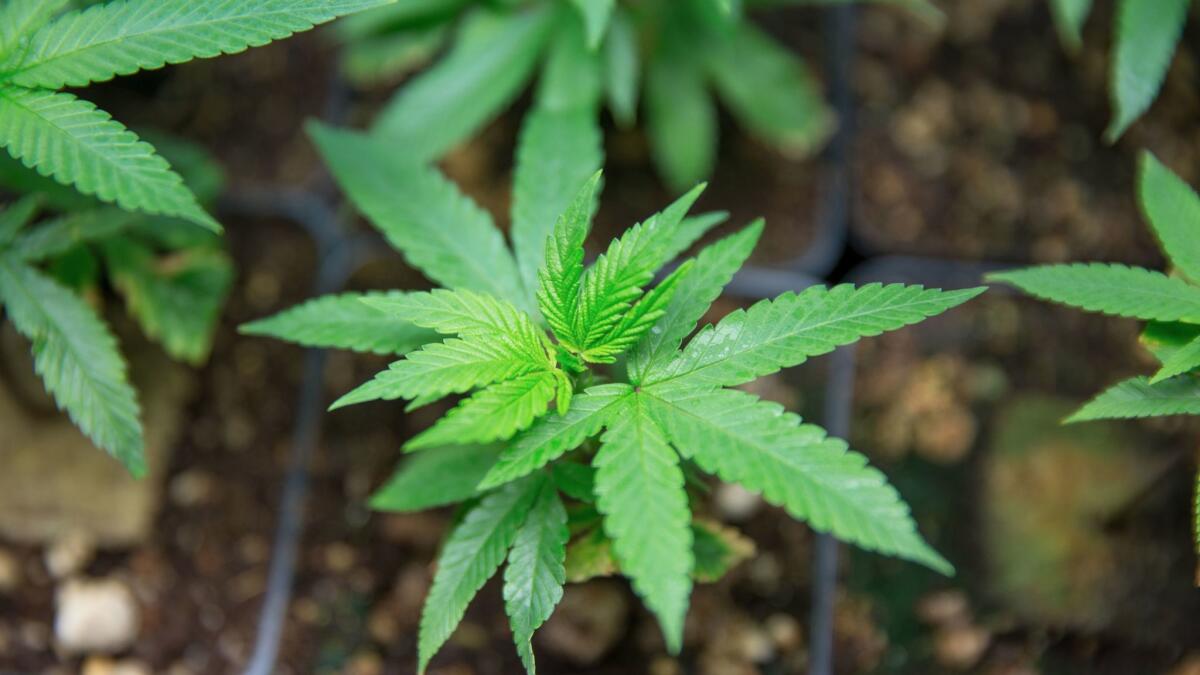Opinion: Sen. Cory Booker’s bill to legalize marijuana may be a long shot, but it’s still worth talking about

- Share via
This week Sen. Cory Booker (D-N.J.) introduced a sweeping bill that would not only legalize marijuana at the federal level, but would attempt to reverse the impact that the war on pot has had in poor and minority communities.
The Marijuana Justice Act would remove marijuana from the list of controlled substances, which would make it legal under federal law. Marijuana is currently listed as a Schedule 1 drug along with heroin and LSD, meaning it has a high potential for abuse and no accepted medical value. (Tell that to the 29 states that allow the use of medical marijuana.)
Booker isn’t the first lawmaker to call for erasing marijuana from the list of controlled substances. Sen. Bernie Sanders (I-Vt.) introduced a bill to do that in 2015. Earlier this year Reps. Tom Garrett (R-Va.) and Tulsi Gabbard (D-Hawaii) proposed it with a measure called the Ending Federal Marijuana Prohibition Act. So did Rep. Jared Polis (D-Colo.) with his Regulate Marijuana Like Alcohol Act.
All of those measures would let states decide whether they want to legalize or not.
What makes Booker’s bill different is that he would pressure states to legalize cannabis. Most of the people picked up for marijuana possession and use are arrested and jailed by local law enforcement operating under state laws. So the federal government alone cannot the end prohibition or eliminate the racial disparities in the enforcement of marijuana laws.
Under Booker’s proposal, states that choose not to legalize marijuana would lose federal criminal justice funding if their enforcement has a disproportionate effect on poor and minority individuals. Most states would fail that test. An American Civil Liberties Union report found that blacks are nearly four times as likely to be arrested for marijuana possession as whites are, even though the groups use marijuana at the same rate.
The bill would allow individuals to sue the state over bias in marijuana enforcement, which could also push states toward legalization.
On college campuses, affluent communities, and even in Congress, Booker said, people brag and joke about their marijuana use.
“You don’t see kids coming home from frat parties being stopped and frisked,” Booker said in a video announcing the bill. Poor, minority communities have arrest rates for marijuana use and possession that are “tragically higher,” he said. A drug conviction can have lifelong impact on a person’s ability to get a job.
To that end, the bill would automatically expunge federal marijuana use and possession crimes, and it would allow individuals currently serving time in federal prison to petition a court for a resentencing. And it would create a fund that could pay for job training, reentry services and youth programs in communities most affected by the war on drugs.
The point, Booker said, is to not just legalize marijuana going forward but also to help low-income and minority communities “recover from the unjust application of the law.”
It’s an ambitious bill that probably won’t go anywhere. So far, Booker is the only sponsor — unlike the other marijuana legalization bills pending, some of which have bipartisan support. By pressuring states to end prohibition, he may alienate some potential allies among Republicans and moderate Democrats who support states’ right to decide. And he’s facing a president and an attorney general who are skeptical, if not downright opposed to legalization.
Nevertheless, Booker is right to broaden the discussion beyond just if and when to legalize marijuana, and into how legalization can repair some of the damage wrought by the war on drugs.
For more opinions, follow me @kerrycavan
More to Read
A cure for the common opinion
Get thought-provoking perspectives with our weekly newsletter.
You may occasionally receive promotional content from the Los Angeles Times.







